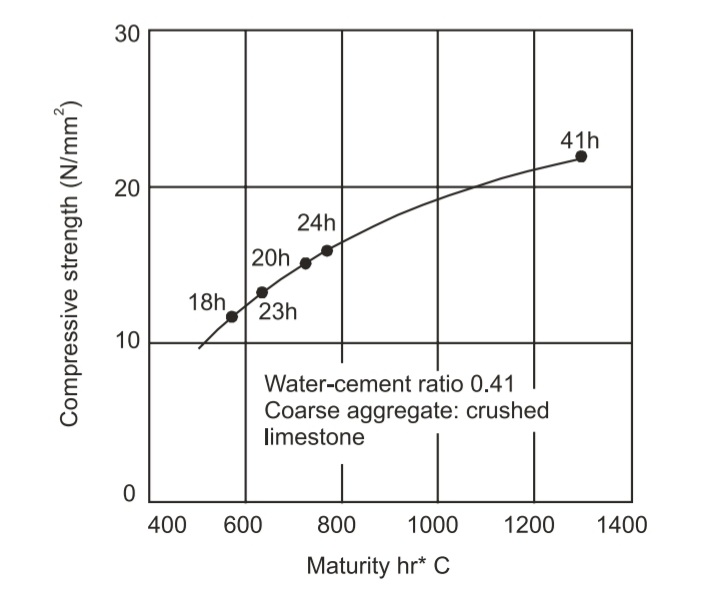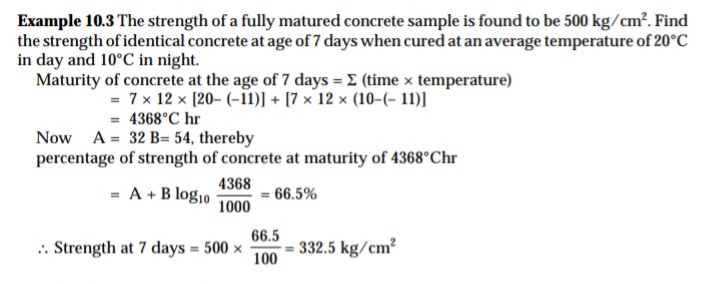This article explains maturity of concrete, its concept, how to calculate maturity of concrete and applications of concrete maturity.
Table of Contents
Definition Of Concrete Maturity
The maturity of concrete is defined as the summation of product of time and temperature.
Formula
Maturity =(time × temperature).
Its units are °C hr or °C days.
Maturity Concept Of Concrete
Concrete maturity is a measure of the extent to which curing has taken place in the material. This measure is determined by examining the relationship between the temperature of the concrete, the duration of curing, and the resulting increase in strength. In practice, the maturity of concrete can be assessed using an index value that can be measured in real time on site.
How To Calculate Maturity Of Concrete
A sample of concrete cured at 18°C for 28 days is taken to be fully matured which is equal
to:
M28 days = 28 × 24[18 – (–11)] = 19488°C hr
The temperature is reckoned from –11°C as origin in the computation of maturity, since hydration continues to take place up to about this temperature.
However, this value is taken as 19800°C hr since the datum used as –11°C is not the exact but the approximate value. An accurate value can be had by dividing the time into smaller intervals and noting the temperature of each and then obtaining the summation of product of time and temperature.
The value obtained without this cumbersome exercise yields a sufficiently accurate value and is accepted. The relationship between maturity and strength of concrete is shown in Figure 1.

Applications
The maturity concept is very useful for estimating the strength of concrete at any other maturity as a percentage of strength of concrete of known maturity by using the formula.
Percentage of strength at maturity of 19800°Chr = A + B log10 (maturity÷103)
Values of constants A and b are shown in image as given below:

A solved numerical of concrete strength at 7 day maturity period is given in below image:

